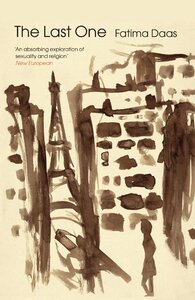Small Boat is the first novel by French philosopher Vincent Delecroix to be translated into English. It’s inspired by real events from 2021, when a dinghy taking migrants from France to the UK capsized, and 27 people died. Despite receiving calls from the passengers, the French authorities didn’t send help, judging that the boat was nearer to – and had then crossed into – British waters.
Recordings of the calls between the migrants and the French monitoring station emerged during the subsequent investigation, with the radio operator seeming indifferent and making comments such as, “I didn’t ask you to leave.” Delecroix’s narrator is that radio operator, as she is being interviewed by police.
The operator is adamant that she has done nothing wrong, that she carried out the duties of her job, and that it wasn’t her place to get emotionally involved:
So I didn’t enlist with the Navy to save the migrants sloshing about on the rail tracks of Pas-ds-Calais, that’s for sure, but if I’m asked to do it, or to help do it, I do. So don’t then ask me what I think, deep down, about these people, or rather about their obsession with flinging themselves into the water in search of I know not what. Also, I have to do it with the means available…I cannot send out dozens of dinghies, speed boats, patrol boats or forty helicopters to save forty small boats at the same time. You have to prioritise.
[Translation from French by Helen Stevenson.]
As the novel goes on, the operator challenges the premises of the investigation. Who can really be held responsible for the migrants’ situation, she asks. Not her, who was only a voice down the phone. Didn’t their problems really start long before they stepped on that boat? Delecroix holds back from explicitly judging his narrator’s position, which pushes the reader to step in.
There is one third-person chapter depicting events on the dinghy, and here Delecroix moves out, writing as an external observer, in contrast to the close psychological examination of the radio operator. The experience is jarring, as it should be, and raises questions of complicity that go beyond one character or country, beyond the pages of a book.
Published by Small Axes (HopeRoad).
Click here to read my other posts on the 2025 International Booker Prize.



Recent Comments